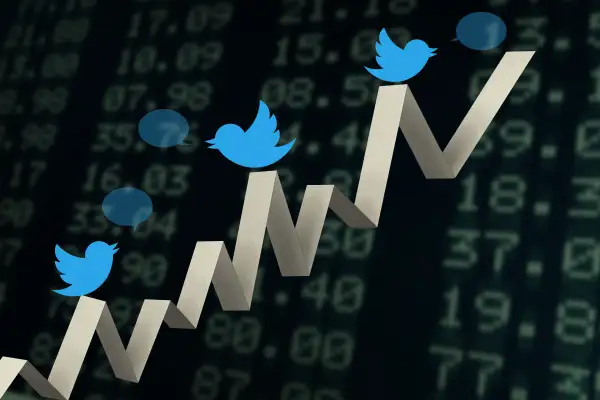Does Being Popular on Twitter Help a Company's Stock? Wall Street Is Betting It Does
Money is not a client of any investment adviser featured on this page. The information provided on this page is for educational purposes only and is not intended as investment advice. Money does not offer advisory services.

Wall Street is obsessed with what you're saying about companies on Twitter.
On Thursday, the S&P 500 Dow Jones Indices announced that it is launching the S&P 500 Twitter Sentiment Index Series in an attempt to gauge the public opinion of certain companies via online chatter. The two indices will use a scoring model to measure the sentiment of Tweets that have "$cashtags," the hashtags added to Tweets to reference certain stocks (like $AMZN for Amazon or $TSLA for Tesla).
The Tweets will be scored based on a database that determines the likelihood that particular words in a message are positive or negative. One index tracks the performance of the top 200 S&P 500 companies with the most positive sentiment on Twitter, while the other will measure the equal-weighted performance of the 50 companies with the most positive sentiment on Twitter. (An equal-weight index gives equal value to all stocks, no matter their size).
Why should sentiment on Twitter concern investors? "Emotions drive near-term price action," says Sam Stovall, chief investment strategist at CFRA Research. "Monitoring these sentiments certainly won't hurt in providing traders with a little more near-term guidance."
It makes sense that Wall Street wants to gauge how everyday investors feel about some of the largest companies in the U.S. The market saw a surge of new investors during the pandemic while everyone was stuck at home in lockdown, getting some extra money via stimulus checks and missing other hobbies like sports betting. Many of them have taken to Reddit, Twitter, TikTok and other social media platforms to talk stocks and cryptocurrencies.
And they've proven they can really move the markets. Last year, an army of retail investors banned together on the internet — including in a subreddit called r/WallStreetBets — to pump up the price of GameStop's stock. While hedge funds bet against the video game retailer, which was struggling with layoffs and dwindling sales, these everyday investors bought up shares of the company, eventually leading to its price soaring and those institutional investors paying the price.
GameStop wasn't the end of the meme-stock mania. Everyday investors have bet en masse on other struggling companies, like the movie theater chain AMC and rental car company Hertz, and significantly pumped up their stock prices.
Wall Street has taken note. For example, Tuttle Capital Management's FOMO ETF attempts to capitalize on the hype around meme stocks while limiting risk, and Roundhill Financial filed a plan to launch a fund that would track an index that includes stocks of companies with elevated levels of social media activity and short interest.
The two new indices from S&P 500 Dow Jones aren't focused on meme stocks, but they show how eager professional traders are to understand what everyday investors are thinking.
"Social media is impacting the way information is being conveyed to investors and the combination of S&P DJI's 125 years of indexing experience with Twitter's large, growing social media community data set will provide a compelling barometer for investors looking to capture market sentiment," Peter Roffman, Global Head of Innovation and Strategy at S&P Dow Jones Indices said in the press release announcing the launch.
More from Money:
New Research Says WallStreetBets Traders May Be Smarter Than We All Think
A Meme Stock ETF Could Soon Be Available to Investors
5 Crypto Investments That Could Steal the Spotlight from Shiba Inu, According to Experts

